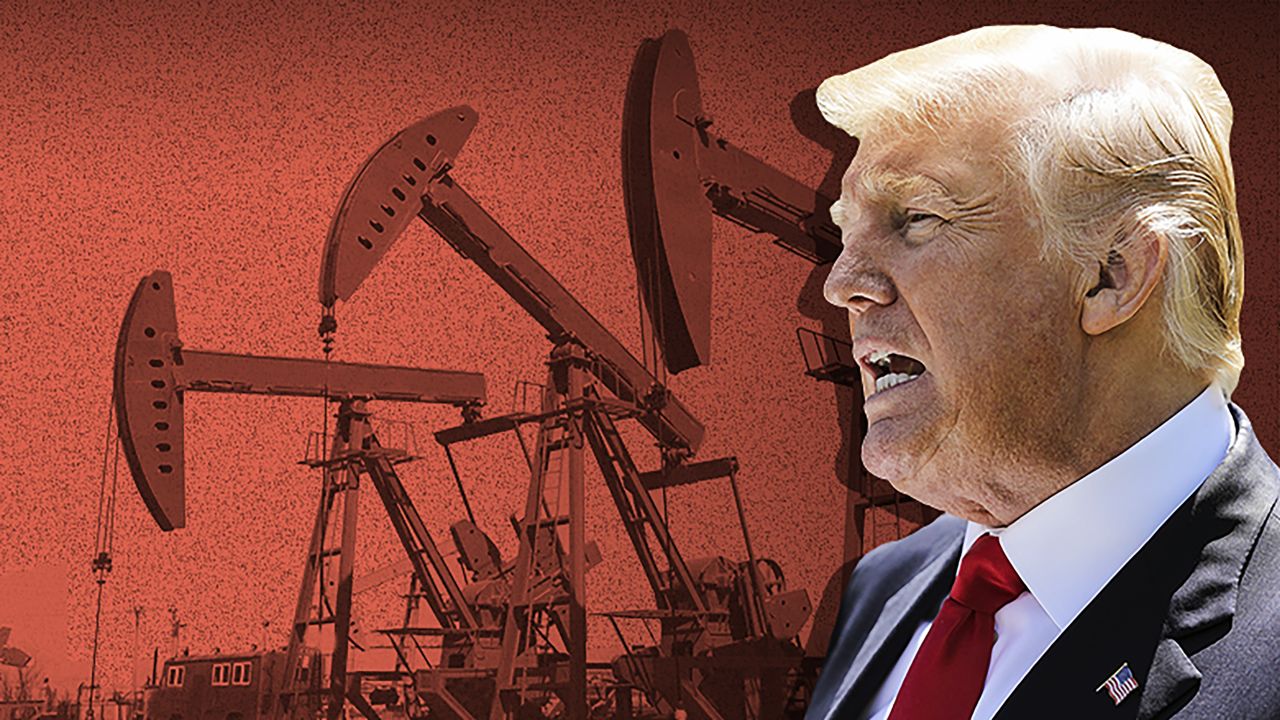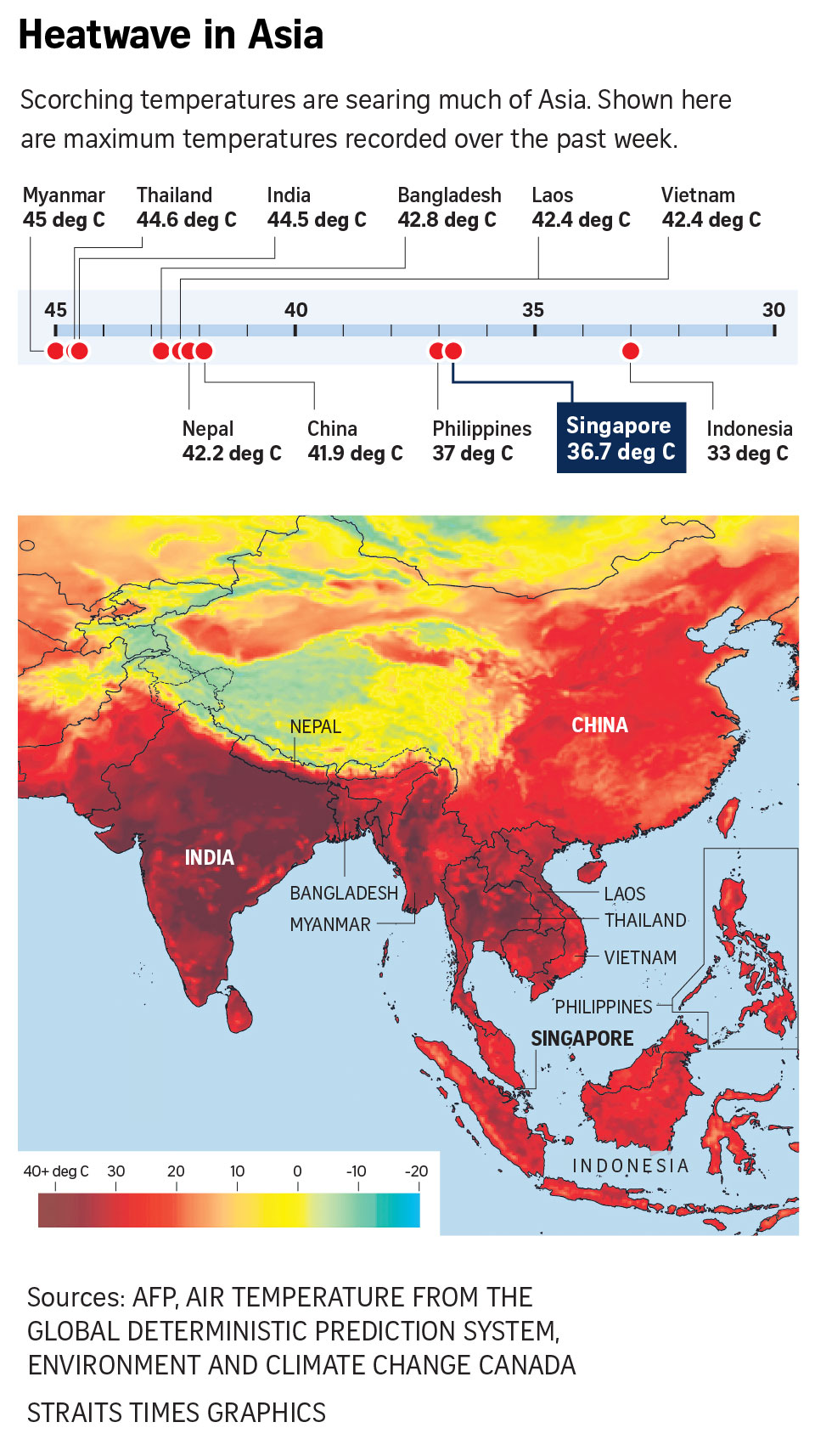The Paradox Of Trump And Oil: Appreciation And Irritation

Table of Contents
Donald Trump's presidency presented a complex relationship with the oil industry, characterized by both significant appreciation from the sector and significant irritation from environmental groups and international partners. This paradox stems from his administration's policies that simultaneously boosted domestic oil production and faced criticism for their environmental impact and geopolitical implications. This article explores this multifaceted relationship, examining the key elements that contributed to both the positive and negative aspects of the Trump-oil dynamic.
Trump's Pro-Oil Policies: A Boon for Domestic Production
Trump's administration implemented a series of policies explicitly designed to bolster the domestic oil and gas industry. This pro-oil stance resulted in a significant increase in US energy production and a shift towards energy independence, but came at a cost.
Deregulation and its Impact
A key component of Trump's energy policy was deregulation. This involved:
- Reduced environmental regulations: The administration rolled back numerous environmental regulations, including those related to methane emissions, water pollution from fracking, and offshore drilling safety. This led to increased drilling and exploration activities across the country.
- Streamlined permitting processes: The Trump administration aimed to expedite the approval process for oil and gas projects, reducing bureaucratic hurdles and accelerating project timelines. This resulted in quicker development and production.
- Withdrawal from the Paris Agreement: The decision to withdraw the US from the Paris Agreement on climate change signaled a clear shift away from international cooperation on climate action and a prioritization of domestic energy production over emission reduction targets.
These deregulatory actions significantly impacted the oil and gas sector, boosting investment and production. However, the environmental consequences of these actions remain a subject of intense debate.
The Rise of Shale Oil
Trump's policies played a significant role in the continued growth of the US shale oil industry. This led to several key outcomes:
- Increased US energy dominance: The US became a leading global producer of oil and gas, reducing its reliance on foreign imports.
- Significant job creation: The boom in shale oil production led to a surge in jobs across the energy sector, particularly in states like Texas and North Dakota. These jobs ranged from extraction and refining to transportation and support services.
- Enhanced energy security: Reduced reliance on foreign oil imports enhanced US energy security, lessening the country's vulnerability to geopolitical instability in oil-producing regions.
The rise of shale oil under Trump's administration significantly reshaped the global energy landscape, highlighting the effectiveness of his pro-production policies. However, the long-term sustainability of this model, especially considering climate change concerns, remains a major point of contention.
International Relations and OPEC: A Source of Friction
While Trump's policies benefited domestic oil production, they also strained relationships with key international players, particularly OPEC (Organization of the Petroleum Exporting Countries).
Strained Relationships with OPEC
Trump's approach to OPEC was often confrontational. He:
- Challenged OPEC production quotas: He publicly criticized OPEC for artificially manipulating oil prices and called for increased production to lower global prices. This direct challenge to OPEC's influence on the global oil market was unprecedented.
- Focused on increasing US oil exports: The administration actively promoted US oil exports, competing directly with OPEC nations for market share. This aggressive export strategy contributed to price volatility and geopolitical tensions.
- Accused OPEC of manipulating oil markets: Trump frequently accused OPEC of manipulating oil markets for their own benefit, alleging price fixing and hindering economic growth.
Sanctions and Geopolitical Strategies
The Trump administration employed sanctions as a key geopolitical tool, impacting global oil supply and prices.
- Sanctions on Iran and Venezuela: Sanctions imposed on Iran and Venezuela, both significant oil producers, disrupted global oil supply and contributed to price increases. These actions had significant geopolitical implications and were met with both support and criticism internationally.
- Negotiations with Saudi Arabia: While engaging in negotiations with Saudi Arabia, a key OPEC member, to stabilize oil markets, the administration faced criticism for its perceived tolerance of human rights abuses within the Saudi regime. This highlighted the ethical dilemmas inherent in US energy policy.
Environmental Concerns and the Legacy of Trump's Oil Policies
The environmental implications of Trump's pro-oil policies were a major source of controversy and continue to be debated extensively.
Increased Greenhouse Gas Emissions
Environmental groups strongly criticized the rollback of environmental regulations, arguing that it:
- Contributed to climate change: The relaxation of regulations led to a significant increase in greenhouse gas emissions from the oil and gas industry, exacerbating the effects of climate change.
- Undermined efforts to transition to renewable energy: Critics argued that the focus on fossil fuels hindered the development and deployment of renewable energy sources.
- Raised concerns about the long-term sustainability of US energy policies: The environmental consequences of Trump's approach to energy policy cast doubt on its long-term sustainability.
Public Health and Environmental Justice
Beyond climate change, concerns arose regarding the public health and environmental justice implications of increased oil production:
- Impact on air and water quality: Increased oil extraction activities raised concerns about the impact on air and water quality in local communities, leading to health problems.
- Disproportionate impact on marginalized populations: The environmental consequences of oil extraction often disproportionately affected marginalized communities, raising concerns about environmental justice.
Conclusion
The Trump administration's relationship with the oil industry was undeniably complex, marked by both significant advancements in domestic oil production and considerable controversy surrounding environmental implications and international relations. While policies promoted energy independence and created jobs, they also fueled concerns about climate change and exacerbated geopolitical tensions. Understanding this "paradox of Trump and oil" requires a nuanced perspective, acknowledging both the economic benefits and the environmental and social costs. Further examination of the long-term consequences of these policies is crucial for future energy strategies. To delve deeper into the intricacies of this complex relationship, explore further resources on the impact of Trump's oil policies and their lasting effects on the global energy landscape.

Featured Posts
-
 Mdah Ne Tam Krwz Ke Jwtwn Kw Chhwa Kya Hwa
May 12, 2025
Mdah Ne Tam Krwz Ke Jwtwn Kw Chhwa Kya Hwa
May 12, 2025 -
 Rethinking Middle Management Their Vital Role In Modern Organizations
May 12, 2025
Rethinking Middle Management Their Vital Role In Modern Organizations
May 12, 2025 -
 Halls Crossroads Baseball Tournament Honors Chris Newsom
May 12, 2025
Halls Crossroads Baseball Tournament Honors Chris Newsom
May 12, 2025 -
 Bayern Munich Clinch Bundesliga Thomas Muellers Final Home Match
May 12, 2025
Bayern Munich Clinch Bundesliga Thomas Muellers Final Home Match
May 12, 2025 -
 Rays Yankees Series Examining The Injured Lists April 17 20
May 12, 2025
Rays Yankees Series Examining The Injured Lists April 17 20
May 12, 2025
Latest Posts
-
 De Zhivut Romi V Ukrayini Kilkist Prichini Ta Detali
May 13, 2025
De Zhivut Romi V Ukrayini Kilkist Prichini Ta Detali
May 13, 2025 -
 Southern California Scorched Record Breaking Heat In La And Orange Counties
May 13, 2025
Southern California Scorched Record Breaking Heat In La And Orange Counties
May 13, 2025 -
 Government Of India Issues Heatwave Advisory To States
May 13, 2025
Government Of India Issues Heatwave Advisory To States
May 13, 2025 -
 Heatwave Emergency Record Breaking Temperatures In La And Orange Counties
May 13, 2025
Heatwave Emergency Record Breaking Temperatures In La And Orange Counties
May 13, 2025 -
 Record Highs Shattered La And Orange Counties Face Dangerous Heatwave
May 13, 2025
Record Highs Shattered La And Orange Counties Face Dangerous Heatwave
May 13, 2025
